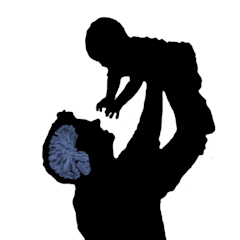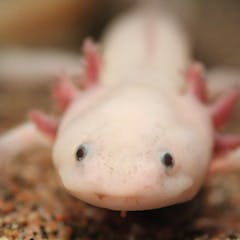
Artikel-artikel mengenai Brain
Menampilkan 81 - 100 dari 578 artikel

Microglia, immune cells disguised as brain cells, are known as the janitors of the brain. Dialing up their usual duties just enough could provide an avenue to treat neurodegenerative disease.

From warfare to entertainment and VR, brain-computer interface development has extended beyond prosthetics for patients with disabilities. Missing is full ethical consideration of the consequences.

Neuroscientists know that pregnant mothers’ brains change in ways that appear to help with caring for a baby. Now researchers have identified changes in new fathers’ brains, too.

When we listen to music, our brain predicts what will happen next. This prediction then influences whether or not we enjoy a song.

People who had COVID were 55% more likely to develop epilepsy or seizures over the next six months than people who had influenza – but the overall risk is still small.

We found being a night owl increased the risk of having behavioural problems and delayed brain development in later adolescence.

During adolescence the brain experiences two opposing tendencies: its capacity for control is not fully developed but the reward system is very active.

The impact of using electronic devices is critical during the first years of life, both visually and on the cognitive and social development of the child.

From more accurate climate modelling to the prospect of truly creative computers, the brain’s use of noise has a lot to teach us.

We hope our work can help shape building planning and design. That could be classrooms that help us concentrate, or hospital waiting rooms that reduce our anxiety.

Too much amyloid-beta in the brain has long been considered the cause of Alzheimer’s. New research suggests it might be the opposite.

Canadian researchers are exploring unanswered questions about concussion: How to diagnose it accurately and quickly, how to predict outcomes and promote recovery, and how to prevent it altogether.

Alzheimer’s may not be primarily a disease of the brain. It may be a disorder of the immune system within the brain. Beta-amyloid may not be an abnormal protein, but part of the brain’s immune system.

Axolotls are amphibians known for their ability to regrow their organs, including their brains. New research clarifies their regeneration process.

Why your eyes move during the REM stage of sleep has puzzled scientists for years. Researchers measured mice brains to look for a possible explanation.

Diets high in fat, sugar and processed foods are associated with higher calorie intake, poorer memory and lower cognitive function.

People who get COVID continue to face increased risks of developing some neurological and psychiatric conditions, like psychosis and dementia, for up to two years afterwards.

AI algorithm that detects brain abnormalities could help cure epilepsy.

A psychologist explains how your brain helps you save money.

From figuring out where memories are stored to how sensory information translates to behavior, new technologies are helping neuroscientists better understand how the brain works.
